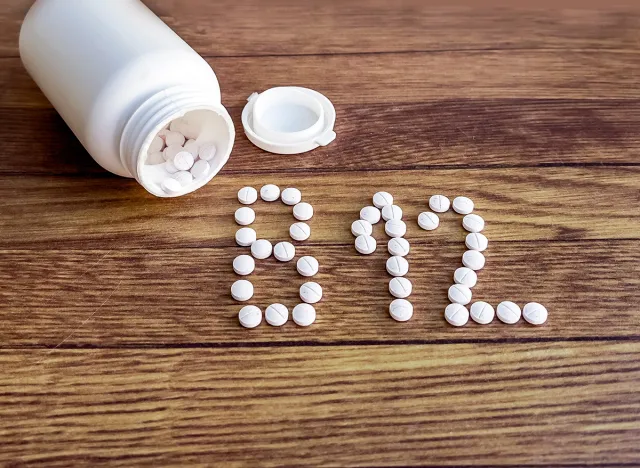Parkinson’s Disease is a disorder that causes nerve cell damage in the brain, which leads to a drop in dopamine, the “feel good” hormone; lower dopamine levels cause atypical brain activity that can lead to impaired movement. Every year, around 13 out of every 100,000 people in the United States deal with the disease. Although it may stem from genetics, head injuries, and some other environmental factors, Parkinson’s will not only affect the one who was diagnosed, but it will affect their loved ones as well.
Once you or someone you know has been diagnosed with Parkinson’s Disease, there are ways to help control the symptoms. This includes changing your diet and even taking medication prescribed by your doctor. There are even supplements that can help provide you with extra nutrients that your body is missing that can impact your disease. According to Lisa R. Young, PhD, RDN, author of Finally Full, Finally Slim, and The Portion Teller Plan and member of the Eat This, Not That! medical expert board, the best supplement you can take to help with Parkinson’s Disease is one with vitamin B12.
“While I’m a fan of a food-first approach, taking a vitamin B12 supplement may slow the loss of reduced cognitive function,” explains Dr. Young. “People with early-onset Parkinson’s disease tend to have lower vitamin B12 levels which may lower cognitive function.”
The importance of vitamin B12


Dr. Young suggests that B12 (also called cobalamin) helps to keep the nerve cells healthy. If you’re taking the food-first approach, B12 can be found mainly in animal products. For example, red meat, chicken, fish, dairy, and eggs, but also in nutritional yeast. However, if you want to ensure you’re getting the correct amount of B12 intake, then you can take a supplement.
According to the Mayo Clinic, the recommended daily amount of vitamin B12 for adults is 2.4 micrograms. The Mayo Clinic further states that the B12 vitamin plays an essential role in red blood cell formation, cell metabolism, nerve function, and the production of DNA, linking dementia and low cognitive function with this vitamin deficiency.
READ RELATED: Skin cancer death rates have TRIPLED in men since 1970s – and going topless could be to blame
What the science says
A study published in the International Parkinson and Movement Disorder Society suggests that patients in the early stages of Parkinson’s disease who show low vitamin B12 experienced faster motor and cognitive decline. This suggests that vitamin supplements may help slow the progression of these symptoms.
In the study, researchers measured vitamin B12 and other B12-related factors in 680 participants with early, untreated Parkinson’s Disease. They then followed up with 456 samples. The results showed that 13% of these participants had borderline low B12 levels, and 7% had elevated homocysteine—an amino acid whose levels are inversely related to a vitamin deficiency. Elevated homocysteine may increase your risks for dementia, heart disease, and stroke without treatment.
Therefore, the study showed that low levels of B12 were common in those with early stages of Parkinson’s Disease. Low B12 predicted greater worsening of mobility, while elevated homocysteine predicted greater cognitive decline.
So, if you’re in need of a vitamin boost, a B12 supplement may help do the trick. As always, consult with your doctor before adding any supplements to your diet.
Kayla Garritano
Source:










